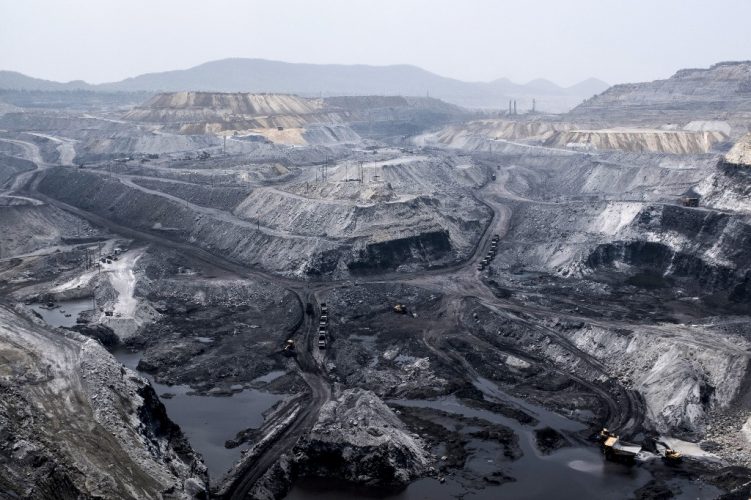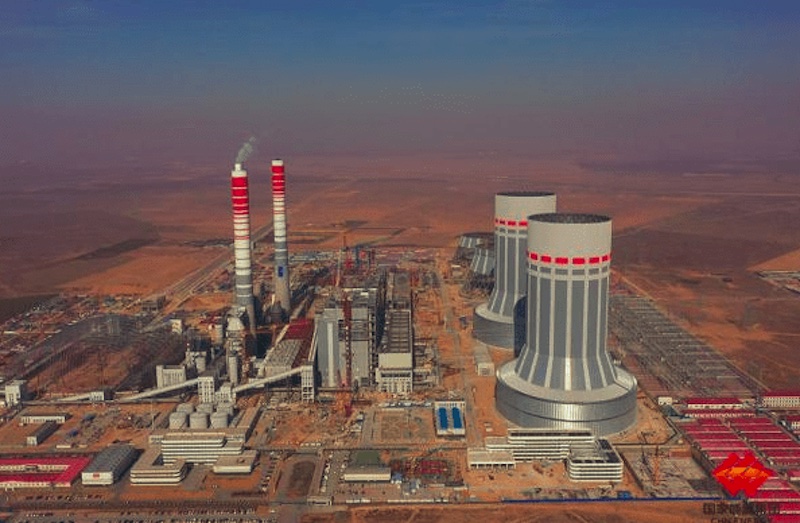France and the United States will push for a ban on private funding for coal power plants at COP28, the big UN climate summit being held in Dubai late this month.
Sources say the plan will be divisive, as both India and China are expected to oppose any move to block construction of coal-fired power plants. The two Asian giants, which both have populations of more than 1.42 billion people, insist their citizens still need more energy from fossil fuel sources.
France’s minister of state for development Chrysoula Zacharopoulou told the Indian government earlier this month about the plan, called the “New Coal Exclusion Policy”, for private financial institutions and insurance companies, two Indian officials said.
The plan to stop private financing for coal-fired power plants has not been previously reported.
ALSO SEE: Pollution Sees Indian Capital Halt Building Work, Shut Schools
A spokesman for Zacharopoulou did not directly comment on emailed queries but said the question of financial investments in coal had been discussed at several different multilateral forums over the past few years.
And India’s environment, power and renewable energy, coal, external affairs and information ministries, the OECD and the French embassy in New Delhi did not respond to Reuters’ requests for comment.
A source in Europe familiar with the plan said the aim was to dry up private funding for coal power and that it was a top priority for French President Emmanuel Macron during COP28, seen as a crucial opportunity to accelerate action to limit global warming.

The proposal provides for the Organisation for Economic Co-operation and Development (OECD) to set coal-exit standards for private finance firms whose financing could be tracked by regulators, rating agencies and non-governmental organisations, the two Indian officials said.
The US, European Union and Canada, among others, have been seeking a plan to expedite the phase-out of coal, which they have cited as the “number one threat” to climate goals.
They are concerned private international financing continues to support large additions to coal capacity in developing nations, according to the plan shared by France with India.

490 GW of new coal plants planned or being built
Some 490 gigawatts of new coal capacity, roughly equal to one-fifth of existing global capacity, is planned or under construction, mostly in India and China, the officials said.
Rick Duke, Deputy US Special Envoy on Climate Change, did not comment directly on the proposal but noted the expansion in coal-fired plants.
“We are pushing to set an expectation globally that countries need to join us in the fastest possible power sector transition, including all that clean power deployment,” Duke said.
“And countries need to stop digging a deeper hole by building new unabated coal power plants, because unfortunately, there’s still some 500 gigawatts of new coal-fired power plants in the pipeline globally, and the IPCC and the International Energy Agency have both been quite clear that that needed to stop already.”
Member countries are divided on emissions abatement technologies that are yet to evolve to commercial scale for use in developing countries, one of the Indian officials said.
About 73% of electricity consumed in India is produced using coal, even though the country has increased its non-fossil capacity to 44% of its total installed power generation capacity.
The country intends to resist the push to fix a deadline for a fossil fuel phase-out or phase-down at COP28, as coal will be its main energy source for a few more decades, and may ask members to shift their focus on reducing emissions from other sources.
It may also push developed nations to become carbon negative rather than carbon neutral by 2050.
- Reuters with additional editing by Jim Pollard
ALSO SEE:
China to ‘Dominate’ Global Solar Supply Chain For Next Decade
Drop in Hydropower Forcing China and India to Use More Coal
China Warns of Export Curb on Polysilicon, Solar Wafers
China Goods Ban to Spur Big Drop in US Solar Installations
US Crackdown on China ‘Slave Labour’ Blocks Solar Projects
China’s Trina Solar Eyeing Third Vietnam Plant After US Sanctions
China’s Shift to Renewable Energy Roaring Ahead – Guardian
India’s Power Play to Become a Global Solar Force – Hindu
























